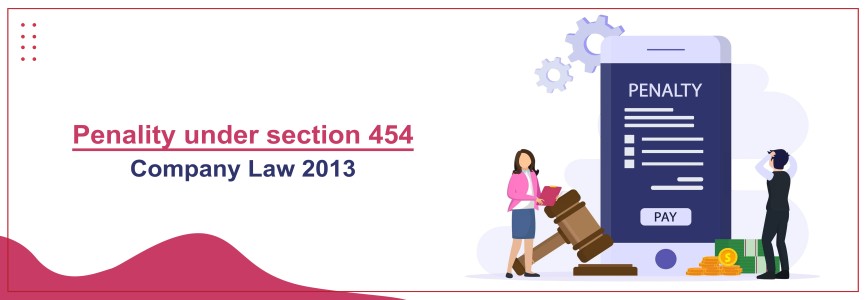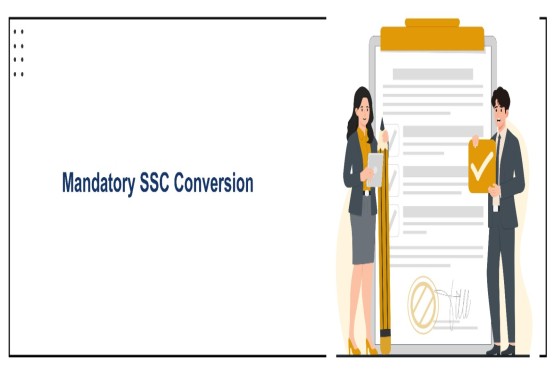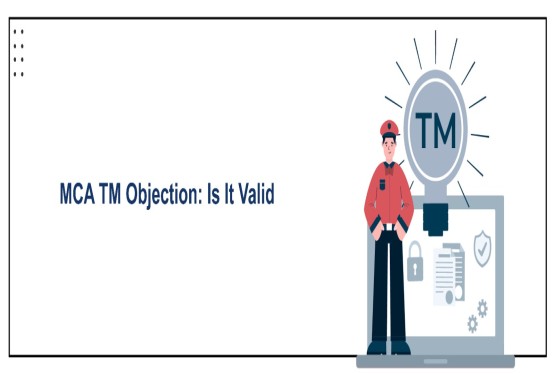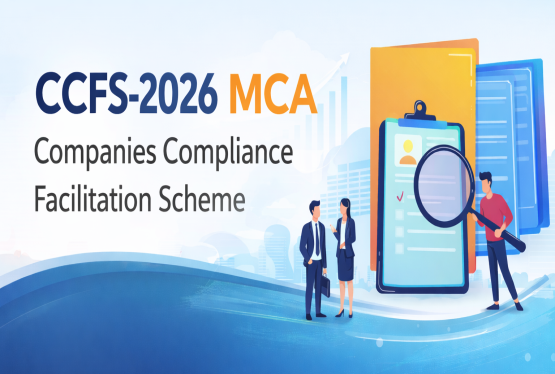Company has not filed Form MGT-14 for filing Board Resolution passed for approval of Financial Statements
Corporate compliance under the Companies Act, 2013 is central to accountability and investor protection, not a mere formality. Section 117 requires timely filing of key resolutions (e.g., approval of financial statements) with the ROC; delays attract penalties. In Jeevodhaya Sahaya Nidhi Limited, ROC Chennai (u/s 454) penalized the company and its officers for filing Form MGT-14 343 days late for FY 2021–22 far beyond the 30-day limit treating it as a continuing default and imposing the maximum penalty permissible. The order underscores that directors cannot evade liability by change of designation; compliance is a collective duty. The case reaffirms prompt filings, personal accountability of officers, and the ROC’s robust adjudicatory powers to enforce compliance and deter delays.
Facts of the Case
Jeevodhaya Sahaya Nidhi Limited incorporated in 2013 under the Companies Act and headquartered in Salem, Tamil Nadu was duty-bound, along with its directors, to ensure strict statutory compliance and transparent governance. On May 9, 2022, the Board approved the financial statements and the Board’s Report for FY 2021–2022 pursuant to Section 179(3)(g). Consequent to this, Section 117(1) read with Section 117(3)(g) mandated filing the Board resolution in Form MGT-14 within 30 days; the company reckoned October 5, 2022 as the due date. However, the filing was not made within time and was ultimately completed only on September 13, 2023 (SRN AA4755593), reflecting a substantial 343-day delay. Observing this lapse, ROC Chennai initiated adjudication under Section 454, issued notices, and afforded an e-hearing on March 5, 2025, where the company’s PCS argued that the delay was inadvertent and penalties, if any, should fall only on the company and its Managing Director, Mrs. Rebecca Sarojini Stanley. After evaluating the submissions and treating the lapse as a continuing default under Section 117(2), the ROC concluded that liability extended to the company and all its directors as “officers in default,” and consequently imposed the maximum penalty of Rs.44,300 each (subject to statutory caps), underscoring the collective, non-delegable nature of compliance obligations.
Legal Provisions Involved
Section 117 of the Companies Act, 2013 – Resolutions and Agreements to be Filed:
Agreements and Resolutions to Be Filed Under Section 117 of the 2013 Companies Act Section 117 of the Companies Act of 2013 is one of the most important clauses relating to compliance. It ensures that some of the company's most significant decisions are made public by submitting them to the Registrar of Companies (ROC).
Sub-section (1):
It requires that all special resolutions, specific agreements, and some types of board resolutions be submitted to the ROC in Form MGT-14 within 30 days of their passage. Maintaining transparency, permitting regulatory oversight, and guaranteeing that stakeholders and shareholders have access to official records of important business decisions are the goals.
Sub-section (2):
Subsection (2): It specifies the following penalty for filing default: Company: up to Rs.2,00,000, plus Rs.10,000 for every day of continuous default. Officer in Default (Key Management/Directors): Rs.10,000 + Rs.100 daily, up to a Rs.50,000 cap.
Application in the Case: Jeevodhaya Sahaya Nidhi Limited did not submit the Board Resolution approving the financial statements for FY 2021–2022 within the allotted 30-day period. Rather, the penalty under Section 117(2) was imposed because the resolution was filed 343 days after the original date.
Section 454 of the Companies Act, 2013 – Adjudication of Penalties:
Section 454 gives the Ministry of Corporate Affairs (MCA)-appointed Registrar of Companies (ROC) or other adjudicating officers the authority to impose fines for violating the Act's provisions. The adjudicating officer is able to: Give the business and its officers-in-default a show-cause notice. Give them a chance to defend or explain the hold-up. If the explanation is inadequate or the default is demonstrated, issue a penalty-imposing order. Additionally, the section stipulates that a company or its officers have sixty days to appeal to the Regional Director (RD) if they are unhappy with the order.
Use in the Situation: In this case, ROC Chennai used its authority under Section 454 to decide Jeevodhaya Sahaya Nidhi Limited's default. The ROC determined that the company and its directors had blatantly violated Section 117(2) after taking into account the 343-day delay in filing Form MGT-14. As a result, the company and its officers-in-default were subject to penalties.
Findings of ROC Chennai
-
Default ROC's existence: Chennai noted that the business did not submit Form MGT-14 within the 30-day window required by Section 117(1). The 343-day actual delay was regarded as a significant and ongoing default.
-
Section 117(2) Applicability: The default was directly governed by Section 117(2) because it concerned the Board Resolution that approved the financial statements and Board's report (covered under Section 179(3)(g)). The company was subject to penalties, as were its officers-in-default.
-
The duty of directors: The company and its directors share responsibility for compliance, according to ROC. No Form GNL-3 authorizing a specific officer for compliance was filed by the company. As a result, the Managing Director and all other directors were regarded as officers-in-default. Submissions Taken into Account The company contended during the e-hearing that the lapse was unintentional and that only the company and its managing director should be subject to the penalty. However, ROC ruled that the Act's express provisions could not be overridden by such an argument. This kind of delay could not be regarded as a small or technical error.
-
Quantum of Penalty and Delay: The adjudicating officer determined that the maximum penalty should be imposed on the company and its directors due to the lengthy 343-day delay. The company was fined up to the Rs.2,00,000 statutory maximum. The maximum penalty for each director was Rs.50,000. In order to strengthen the idea of personal accountability in corporate governance, Personal Liability ROC also underlined that fines levied against directors must be paid out of their personal income or funds rather than from company assets.
-
Conclusion of Findings ROC: Chennai came to the conclusion that Jeevodhaya Sahaya Nidhi Limited and its directors were obviously in arrears. Since their actions amounted to grave negligence in maintaining compliance, punishment under Section 117(2) read with Section 454 was unavoidable.
Penalties Imposed
The following penalties were imposed on the company and its directors by ROC Chennai under Section 117(2) of the Companies Act, 2013 after taking into account the facts, submissions, and statutory provisions:
On the Company- Jeevodhaya Sahaya Nidhi Limited:
-
The Company The business was held accountable for the 343-day delay in filing Form MGT-14.
-
Penalty assessed: Rs.44,300, up to the Rs.2,000,000 statutory maximum.
ROC capped the calculated daily penalty in accordance with the law, even though it exceeded the base amount
Directors (Officers-in-Default) : Since the company assigning compliance responsibility did not file a specific authorization (Form GNL-3), each director was considered an officer-in-default. Penalties were therefore levied on an individual basis: Rs.44,300 (up to Rs.50,000)
Mr. Samuel Devaprasad Stephens (DIN: 02234036). Rs.44,300 (up to Rs.50,000) for
Mrs. Rebecca Sarojini Stanley (DIN: 02234283). Rs.44,300 (up to Rs.50,000) for
Ms. Pratibah Samuel Stephens (DIN: 08915640). Rs.44,300 ( up to Rs.50,000).
Directors' Personal Liability: ROC clarified that the penalties could not be deducted from company funds and had to be paid out of the directors' personal income. This requirement was put in place to make officers-in-default more accountable. The Need for Rectification Along with financial penalties, the company and its directors were directed to make amends for the default right away by finishing the required paperwork and making sure there was no more violation.
Directions Issued by ROC
ROC Chennai gave Jeevodhaya Sahaya Nidhi Limited and its officers-in-default the following instructions in light of the adjudication proceedings and conclusions,
Correction of Default: In order to correct the default, the company and its directors were instructed to complete the resolution's delayed filing (Form MGT-14) and make sure that all legal requirements were met.
Payment of Penalty
Within 90 days of receiving the order, the company and its directors were directed to pay the penalties that had been imposed.
Penalty payments must only be made using the appropriate login IDs on the MCA's e-Adjudication portal.
Proof Submission:
As evidence of compliance, the directors and the company had to post a copy of the paid challan/SRN on the e-Adjudication portal after the payment was made.
Directors' Personal Liability: ROC underlined that the directors' personal income and sources, not the company's funds, must be used to pay their penalties. This was done in order to strengthen the idea of personal responsibility under corporate law.
Right to Appeal:
The ability to appeal Within 60 days of receiving the order, the company and its officers had the option to appeal to the Regional Director (RD), Chennai, if they felt wronged.
A certified copy of the penalty order and the appeal must be submitted in Form ADJ. Notice of Implications
Warning of Consequences:
ROC also made clear that, in accordance with Section 454(8) of the Companies Act of 2013, noncompliance with these instructions, including nonpayment of penalties within the allotted time, would result in additional criminal penalties.
Final Note of the Article
The ROC Chennai order against Jeevodhaya Sahaya Nidhi Limited underscores that statutory compliance under the Companies Act, 2013 is mandatory and enforceable not a formality. A 343-day delay in filing MGT-14 for a Board resolution was treated as a serious, continuing default, drawing maximum penalties. Liability was fixed on both the company and its directors, reaffirming collective, personal accountability for timely filings especially critical for Nidhi companies that rely on public trust. The case also illustrates the ROC’s effective adjudication under Section 454, ensuring swift enforcement outside regular courts. Ultimately, it reinforces that robust corporate governance rests on compliance discipline as much as business performance.











































































_crop10_thumb.jpg)


































































_crop10_thumb.jpg)
_crop10_thumb.jpg)



_crop10_thumb.jpg)


_crop10_thumb.jpg)





_crop10_thumb.jpg)

_crop10_thumb.jpg)














-suratgujarat-section-158_crop10_thumb.jpg)
-suratgujarat_crop10_thumb.jpg)
-(33)_crop10_thumb.jpg)



-ahmedabad_crop10_thumb.jpg)
-learn_crop10_thumb.jpg)

-learnn_crop10_thumb.jpg)



























































_crop10_thumb.jpg)























_Guidelines_learn_crop10_thumb.jpg)























_learn_crop10_thumb.jpg)
_crop10_thumb.jpeg)










_crop10_thumb.jpg)




_Second_Amendment_Rules,_2025_learn_crop10_thumb.jpg)







_learn_crop10_thumb.jpg)












































_learn_crop10_thumb.jpeg)























_learn_crop10_thumb.jpg)



_rd_roc_learn_crop10_thumb.jpg)
















_learn_crop10_thumb.jpg)














_learn_crop10_thumb.jpg)
_Learn_crop10_thumb.jpg)











































_learn_crop10_thumb.jpg)




_learn_crop10_thumb.jpg)













_crop10_thumb.jpeg)




















